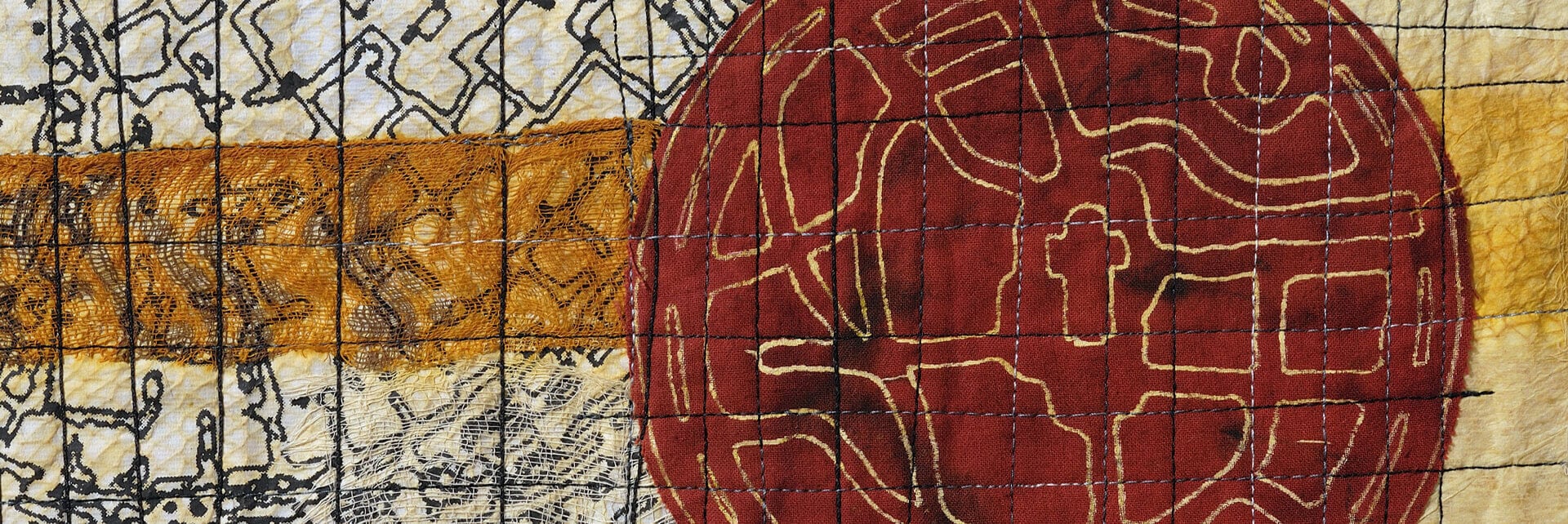Eszter Bornemisza is a fiber artist based in Budapest, Hungary, with a background as a mathematician. Holding a PhD in mathematical statistics, she worked as a researcher for two decades before transitioning to fiber arts in the mid-1990s. Eszter’s artistic practice is defined by the creation of large-scale, transparent fiber works, 3D objects, and installations, often crafted from everyday materials like waste newspaper and cloth. Her primary technique involves machine stitching with elements of printing, dyeing, and painting.
She often creates large sized, unwearable garments by reconstructing vintage, disassembled clothing, reimagining them as new, cohesive entities that carry altered messages and evoke fresh interpretations.
Central to Eszter’s work is the exploration of urban life, with a particular focus on city maps and their representation of both physical and spiritual spaces. For over twenty years, she has been captivated by the structure of urban plans, distorting, layering, and reinterpreting them as a way to explore the complex relationship between individuals and the cities they inhabit. Eszter’s fragmented, often distorted city maps are absorbed with traces of the past and present, blending ancient pathways with modern grids of highways, metro lines, and streets. These works reflect the tension between personal identity and the often-overwhelming forces of urban existence. For her, the city maps serve as metaphors for a journey of self-discovery, with labyrinthine layouts and dead-ends symbolizing the search for mental and spiritual balance.
Experimentation and research are central to her creative process, and the resulting pieces evoke both the complexity and challenges of navigating contemporary life.
Eszter’s work has been exhibited extensively across Europe, the Americas, Australia, China, and Japan, in both solo and juried shows. She has received multiple awards for her innovative approach to fiber art, establishing herself as a significant figure in the international art community.
